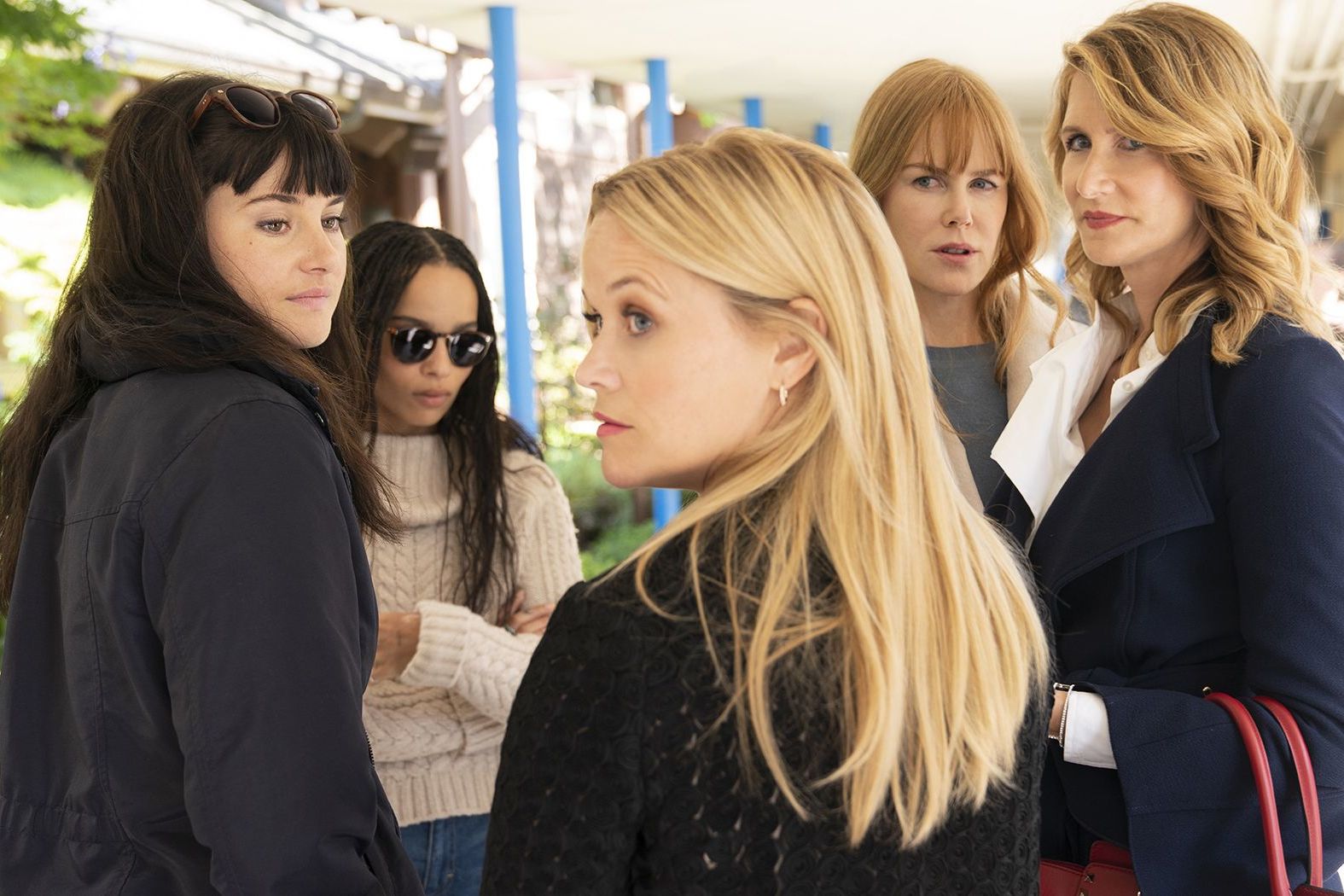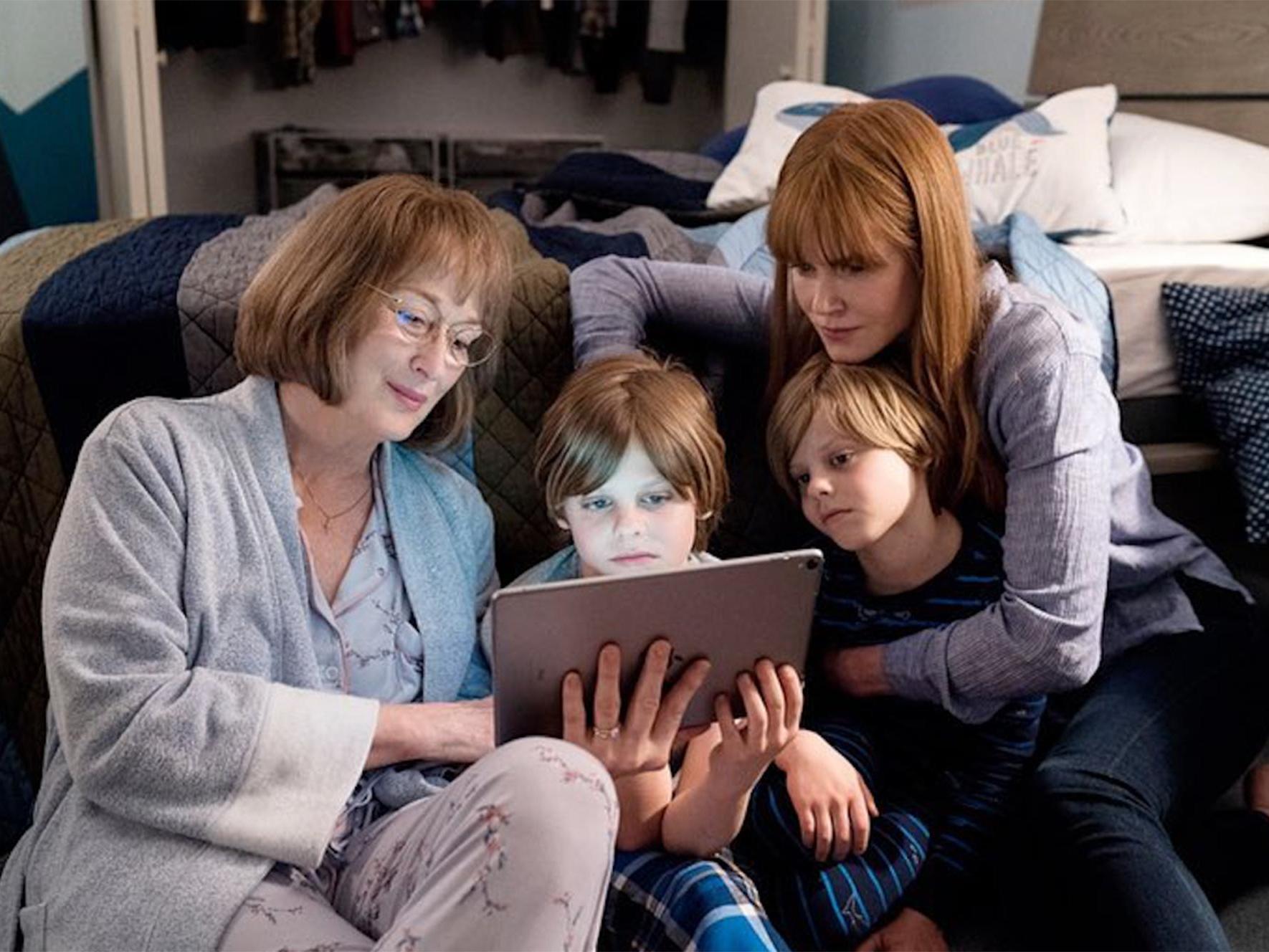How Big Little Lies captures the trauma and truth of womanhood
As the HBO series returns for a second season on Sky Atlantic, our arts columnist Fiona Sturges argues that, despite the affluence of the characters, the struggles they face are realities for women of all backgrounds


Your support helps us to tell the story
From reproductive rights to climate change to Big Tech, The Independent is on the ground when the story is developing. Whether it's investigating the financials of Elon Musk's pro-Trump PAC or producing our latest documentary, 'The A Word', which shines a light on the American women fighting for reproductive rights, we know how important it is to parse out the facts from the messaging.
At such a critical moment in US history, we need reporters on the ground. Your donation allows us to keep sending journalists to speak to both sides of the story.
The Independent is trusted by Americans across the entire political spectrum. And unlike many other quality news outlets, we choose not to lock Americans out of our reporting and analysis with paywalls. We believe quality journalism should be available to everyone, paid for by those who can afford it.
Your support makes all the difference.I’ll admit it was the kitchens that reeled me in. When I first saw Big Little Lies, the series about a group of Californian mothers which returns on Monday, it had all the markers of a daft Hollywood confection. Famous names, expensive clothes (stilettos on the school run? Why not?) and spotlessly clean cars (because birds know better than to crap on Monterey 4x4s). The protagonists lived in the kind of gleaming show homes that make the Four Seasons look like a crummy one-star B&B. Never mind the infinity pools and handsome clifftop views – you could house a family of four in Reese Witherspoon’s kitchen island.
But this was more than mere property porn. We were looking at a murder, though the culprit wasn’t really the point. It was about how women exist daily with violence, the ways in which they rationalise and compartmentalise, and the gulf that lies between what they present to the world and what goes on behind closed doors. In the stunning denouement, during which the main characters’ hidden traumas were finally exposed, the connection between them became indelible.
A show that puts its female characters front and centre, and deals with their stories sensitively and smartly, remains something of a novelty. Still, the affluence on display in the first series irritated some. Similar complaints were made about Fleabag, specifically how the poshness of its characters supposedly made them unrelatable. But, behind the lustrous exterior, the subject matter of Big Little Lies remains truthful and raw. In the annals of American TV drama, you’d struggle to find a sharper portrait of female friendship, motherhood and familial dysfunction. Were you to pick up the show and relocate it to a depressed British town, the themes would still hold.
There’s another similarity with Fleabag, too, in the fact that Big Little Lies seemed fully wrapped up after the first series. Why keep them going? In the case of Fleabag, it’s because its writer Phoebe Waller-Bridge discovered new avenues to explore related to grief, love and religion. In Big Little Lies, after the high drama of the first season, comes the reckoning. I wasn’t confident it would work but, having watched the first three episodes, I can confirm that the aftershock is a journey all of its own.
And so we are reunited with Witherspoon’s Madeline (highly strung, loyal to the last), Nicole Kidman’s Celeste (grief-stricken), Shailene Woodley’s Jane (self-reliant), Zoe Kravitz’s Bonnie (withdrawn and traumatised) and Laura Dern’s Renata (never not furious), their lives forever altered by the death of Celeste’s abusive husband after being pushed down some stairs at a school fundraiser. Their secret weighs heavily. Not only are the police still fitfully on the case, the town gossips are calling them “the Monterey Five”. At its most basic, Big Little Lies 2 reminds me of I Know What You Did Last Summer, but without the hook-wielding madman.
That the second series is directed by Andrea Arnold, the British indie director behind American Honey and Wuthering Heights, has further heightened its hazy, hypnotic atmosphere – flashbacks merge into dreams and back again. Silence holds no fear here – there is a lot of staring out to sea – and the light is wonderful, even if the colour palette sometimes resembles a Farrow & Ball paint chart. Formerly peripheral characters are now developed – in the case of Kravitz’s Bonnie, this rights one of the more glaring wrongs of the first series. Her isolation as the only woman of colour in a rich, white community is acknowledged by her mother who points out: “You are out here surrounded by people who don’t even look like you.”
Along with Arnold, there’s another delicious addition here in the shape of Meryl Streep as Mary Louise, Celeste’s mother-in-law. Sporting a wig and an array of beige cardigans, Streep delivers a lethal cocktail of kindness and cruelty. Her conversations with Madeline, to whom she takes an instant dislike, are masterclasses in passive aggression (“you are very short”), while her undermining of Celeste’s grief and suffering is deeply discomforting. Indeed, it’s the handling of Celeste’s trauma that elevates Big Little Lies above everyday TV portraits of womanhood and, at times, made me physically quake. Did she provoke her husband? Why didn’t she leave him earlier, or go to the police? Did she enjoy the beatings? What about their sex life? Asked by Mary Louise, these questions seem crass and cruel but they nonetheless plague Celeste during her therapy sessions.

All this is counterbalanced by some brilliant histrionics from Renata, who gives her daughter Amabella’s new teacher a ferocious dressing-down on the first day back at school. Renata is ghastly and I love her, not least because her character flies in the face of the notion that women must strive to be likeable. Faced with the full extent of her husband’s dodgy financial dealings, she yells: “I will not not be rich!” loud enough to be heard in space. It’s a throwaway line that nonetheless encapsulates the tension at the heart of Big Little Lies: that, however much in control these women may feel, the lives they have carefully built can easily be swept away.
Join our commenting forum
Join thought-provoking conversations, follow other Independent readers and see their replies
Comments